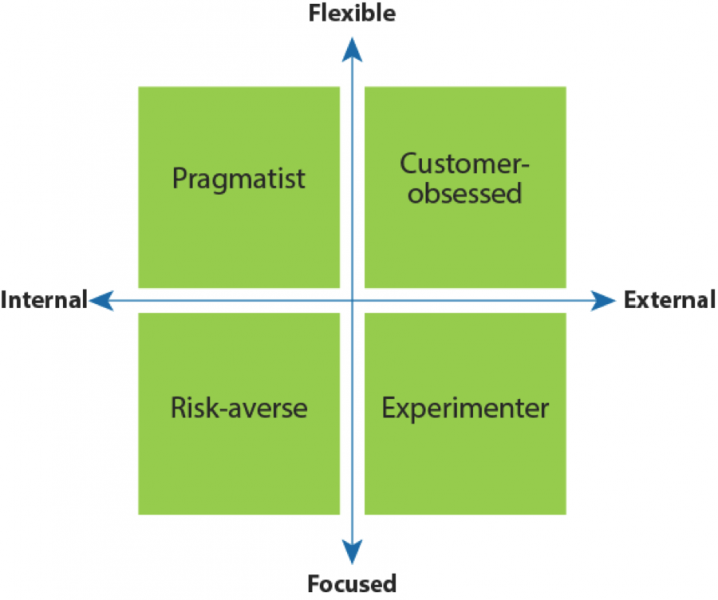Culture Is Key To Marketing Innovation Velocity
Today, we published my first Forrester Research report on marketing innovation, "Culture Is Key To Marketing Innovation Velocity" (client access required). This is the first report in a series I will be writing on marketing innovation culture, innovation labs, and partnering to accelerate marketing innovation velocity.
Marketing innovation in the age of digital disruption, perpetually connected customers, and the customer life cycle is hard and getting harder. What separates the marketers who are leading their organizations to accelerate marketing innovation velocity is the organizational culture they have created. This report discusses the four marketing innovation cultures including: risk-averse, pragmatist, experimenters, and customer-obsessed. We also align the cultures based on whether they are internally or externally oriented or highly focused or highly flexible. For example, a customer-obsessed culture is more flexible and externally oriented in how it innovates and markets to its customers. Here is the marketing innovation cultures matrix:

The report also discusses four case studies including Nestlé, 7-Eleven, Skinnygirl Cocktails, and Chick-fil-A.
- The Nestlé case study discusses how its Digital Acceleration Team lab is helping it change the culture of a 300,000-person organization.
- The 7-Eleven case study discusses how it leveraged the insights learned from the Slurpee Nation Rewards and 7-Election marketing programs to implement an application programming interface and Hackathon mindset and culture.
- The Skinnygirl Cocktails (Beam) case study showcases its entrepreneurial culture and how it gave marketing team members flexibility that made the #LadyInRed integrated social and traditional media marketing program successful during the 2013 Academy Awards.
- The Chick-fil-A case study shows how listening to your employees and store operators can lead to innovative programs like the Daddy-Daughter Date Night hyper-local brand and store relationship program.
Each of these case studies shows how marketing leaders are guiding their organizations to be more customer-obsessed over time. This is important, as the marketing leaders who accelerate marketing innovation faster will be able to keep up with not only where their customers are today but also where they will be in the future.
I am working on the next report in the marketing innovation series on how to assess your own marketing innovation culture. Please take the following 5-minute marketing innovation culture assessment survey. I will be sharing the results from this survey later in the summer.
As always, I look forward to your feedback and comments.